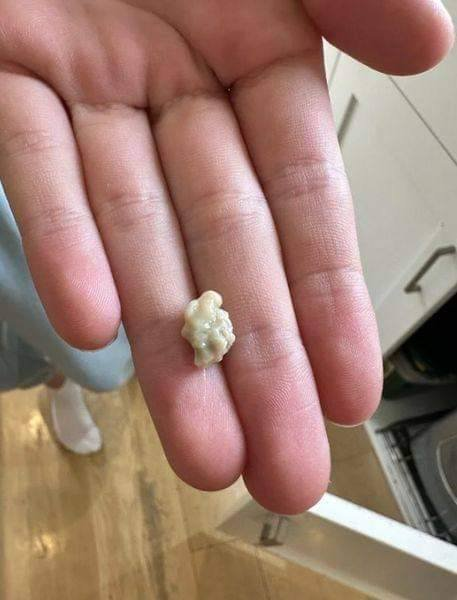ADVERTISEMENT
Certain factors increase your likelihood of developing tonsil stones, including:
Poor oral hygiene
Chronic tonsillitis or frequent throat infections
Large tonsils with deep crypts
Dry mouth or reduced saliva production
How to Prevent Tonsil Stones
Maintain Good Oral Hygiene: Brush and floss regularly to minimize bacteria.
Hydrate Often: Drinking water helps keep your mouth clean and prevents buildup.
Gargle with Salt Water: This can help dislodge debris and reduce inflammation.
Avoid Smoking: Smoking promotes bacterial growth and increases dryness.
Treatment Options for Tonsil Stones
At-Home Removal: Gently use a cotton swab or water flosser to dislodge visible stones.
Saltwater Gargles: Regular gargling can soothe irritation and help dislodge stones.
Professional Cleaning: Your dentist or doctor can remove larger or persistent stones.
Tonsil Removal: For chronic sufferers, a tonsillectomy may be recommended.
When to See a Doctor
While tonsil stones are usually harmless, consult a healthcare provider if you experience:
Persistent discomfort or difficulty swallowing
Frequent tonsil stone formation
Symptoms of infection, such as fever or swelling
Why You’ll Love This Guide
Understanding tonsil stones empowers you to take charge of your oral health. With proper hygiene and simple preventive measures, you can reduce their occurrence and enjoy a healthier, fresher-feeling mouth.
Keep your throat happy and stone-free—because no one wants surprises in their tonsils!
